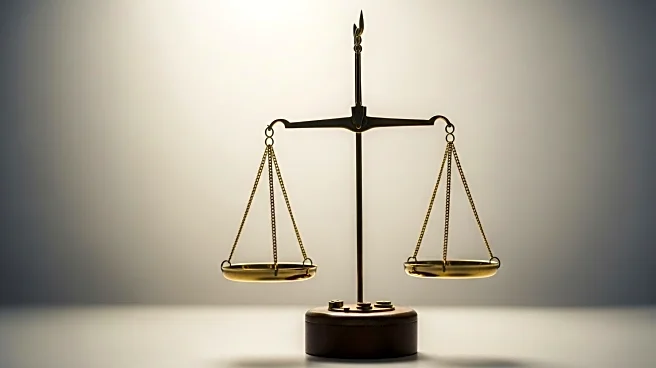What's Happening?
Jane Fonda, an Oscar-winning actor and progressive activist, has revived the Committee for the First Amendment, a free speech initiative originally established by her father, Henry Fonda, in the 1940s. This move comes in response to what the committee describes as a federal campaign to silence critics across various sectors, including government, media, and entertainment. The initiative has garnered support from nearly 600 entertainment industry figures, such as Whoopi Goldberg, Ethan Hawke, and Barbra Streisand. The original committee was formed during the 'Second Red Scare,' a period marked by fears of communist influence, and was supported by notable stars of the era. The relaunch follows recent controversies, including the temporary suspension of Jimmy Kimmel's talk show by ABC, which was criticized as a threat to free speech.
Why It's Important?
The relaunch of the Committee for the First Amendment highlights ongoing concerns about free speech in the United States, particularly in the entertainment industry. The initiative underscores fears that government actions may be encroaching on the rights of individuals to express dissenting views. This development is significant as it reflects broader societal tensions regarding freedom of expression and the role of media in holding power to account. The involvement of high-profile celebrities amplifies the issue, potentially influencing public opinion and policy discussions. The situation also raises questions about the balance between national security and civil liberties, a debate that has historical roots but remains highly relevant today.
What's Next?
The Committee for the First Amendment is likely to continue advocating for free speech rights, potentially influencing legislative and public discourse on the issue. The entertainment industry may see increased activism and solidarity among artists and creators, who could use their platforms to challenge perceived governmental overreach. The White House's response, or lack thereof, to these developments could further shape the narrative and impact future policy decisions. Additionally, the committee's actions may inspire similar movements in other sectors, emphasizing the importance of protecting civil liberties in a democratic society.
Beyond the Headlines
The revival of the Committee for the First Amendment may have deeper implications for the cultural landscape in the U.S. It highlights the enduring legacy of McCarthy-era fears and the ongoing struggle to protect free speech against perceived authoritarian tendencies. The initiative could also spark a broader cultural shift, encouraging more individuals and organizations to speak out against censorship and advocate for transparency and accountability. This movement may also influence international perceptions of the U.S. as a bastion of free speech, impacting diplomatic relations and global human rights advocacy.









